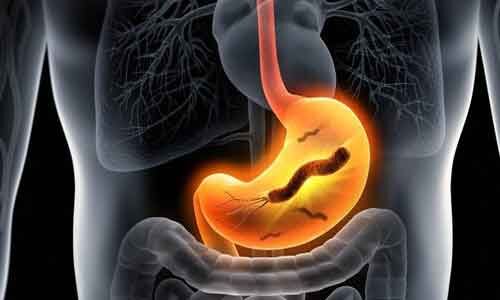- Home
- Medical news & Guidelines
- Anesthesiology
- Cardiology and CTVS
- Critical Care
- Dentistry
- Dermatology
- Diabetes and Endocrinology
- ENT
- Gastroenterology
- Medicine
- Nephrology
- Neurology
- Obstretics-Gynaecology
- Oncology
- Ophthalmology
- Orthopaedics
- Pediatrics-Neonatology
- Psychiatry
- Pulmonology
- Radiology
- Surgery
- Urology
- Laboratory Medicine
- Diet
- Nursing
- Paramedical
- Physiotherapy
- Health news
- Fact Check
- Bone Health Fact Check
- Brain Health Fact Check
- Cancer Related Fact Check
- Child Care Fact Check
- Dental and oral health fact check
- Diabetes and metabolic health fact check
- Diet and Nutrition Fact Check
- Eye and ENT Care Fact Check
- Fitness fact check
- Gut health fact check
- Heart health fact check
- Kidney health fact check
- Medical education fact check
- Men's health fact check
- Respiratory fact check
- Skin and hair care fact check
- Vaccine and Immunization fact check
- Women's health fact check
- AYUSH
- State News
- Andaman and Nicobar Islands
- Andhra Pradesh
- Arunachal Pradesh
- Assam
- Bihar
- Chandigarh
- Chattisgarh
- Dadra and Nagar Haveli
- Daman and Diu
- Delhi
- Goa
- Gujarat
- Haryana
- Himachal Pradesh
- Jammu & Kashmir
- Jharkhand
- Karnataka
- Kerala
- Ladakh
- Lakshadweep
- Madhya Pradesh
- Maharashtra
- Manipur
- Meghalaya
- Mizoram
- Nagaland
- Odisha
- Puducherry
- Punjab
- Rajasthan
- Sikkim
- Tamil Nadu
- Telangana
- Tripura
- Uttar Pradesh
- Uttrakhand
- West Bengal
- Medical Education
- Industry
Potassium-competitive acid blockers based triple therapy bests PPI-based triple therapy for H. pylori eradication

China: Potassium-competitive acid blockers (P-CABs) based triple therapy is superior to that of PPI-based triple therapy as a first-line approach to H. pylori eradication.
The study has published in journal Clinics.
The analysis highlighted that the P-CABs' superiority was driven mainly by studies conducted in Japan. However, as a salvage triple eradication therapy, P-CABs were not superior to PPIs. Also, there was no difference in the tolerability and incidence of adverse events of P-CAB-based and PPI-based triple therapy.
In recent years, potassium-competitive acid blockers have been used in Helicobacter pylori (H. pylori) eradication therapies. However, the safety and efficacy of P-CABs compared to PPIs in this setting remain controversial. Therefore, Mei Zhang, Gastroenterology Department, Xuanwu Hospital Capital Medical University, Beijing, China, and colleagues performed a meta-analysis that included only Randomized Controlled Trials (RCTs) to assess the efficacy and safety of P-CAB-based therapy for H. pylori eradication. A total of seven studies and 1,168 patients were included.
Salient findings of the study:
- The pooled eradication rate determined by Intention-To-Treat (ITT) analysis was 90.2% for P-CAB-based and 75.5% for PPI-based triple therapy (pooled RR = 1.17).
- The Per-Protocol (PP) analysis also demonstrated significant superiority of P-CABs (pooled eradication rate = 92.4% vs. 77.8%; pooled RR= 1.14).
- In a subgroup evaluation, P-CABs were significantly better than PPIs as a first-line eradication therapy, in both the ITT analysis (pooled eradication rate = 91.8% vs. 76.4%; pooled RR = 1.18) and the PP analysis (pooled eradication rate = 93.0% vs. 78.6%; pooled RR = 1.13).
- P-CABs were not superior to PPIs when administered as salvage therapy, as determined in the ITT (75.0% vs. 66.0%, pooled RR = 1.11) and PP (85.7% vs. 70.0%, pooled RR = 1.20) analyses.
- In a subgroup analysis limited to Japanese patients, both the ITT analysis (pooled eradication rate = 89.6% vs. 73.9%; RR = 1.21) and the PP analysis (pooled eradication rate = 92.0% vs. 75.7%; RR = 1.18) showed that P-CABs were significantly superior compared to PPIs as triple eradication therapy.
- However, in the subgroup analysis of patients from other countries, there was no significant difference in either the ITT analysis (pooled eradication rate = 93.8% vs. 85.2%; RR = 1.10) or PP analysis (pooled eradication rate = 95.0% vs. 90.8%; RR = 1.05).
- The incidence of adverse events associated with the two regimens did not significantly differ (P-CABs vs. PPIs: 33.6% vs. 40.0%; RR = 0.84).
- The incidence of serious adverse events and dropout rate due to adverse events also did not differ.
"As some of the authors' conclusions were based on small samples with significant heterogeneity, they should be interpreted with caution," the authors conclude. "Further large-scale RCTs are needed to validate the present findings."
Reference:
Zhang M, Pang M, Zhang M. Efficacy and safety of potassium-competitive acid blockers versus proton pump inhibitors as Helicobacter pylori eradication therapy: a meta-analysis of randomized clinical trials. Clinics (Sao Paulo). 2022 Jul 7;77:100058.
doi: 10.1016/j.clinsp.2022.100058. Epub ahead of print. PMID: 35810638; PMCID: PMC9278030.
Dr Kamal Kant Kohli-MBBS, DTCD- a chest specialist with more than 30 years of practice and a flair for writing clinical articles, Dr Kamal Kant Kohli joined Medical Dialogues as a Chief Editor of Medical News. Besides writing articles, as an editor, he proofreads and verifies all the medical content published on Medical Dialogues including those coming from journals, studies,medical conferences,guidelines etc. Email: drkohli@medicaldialogues.in. Contact no. 011-43720751


